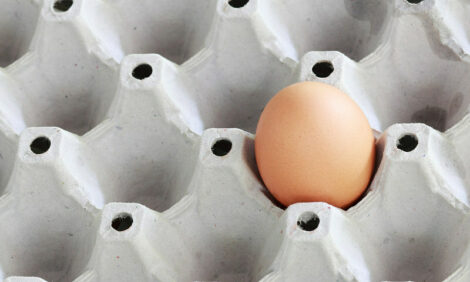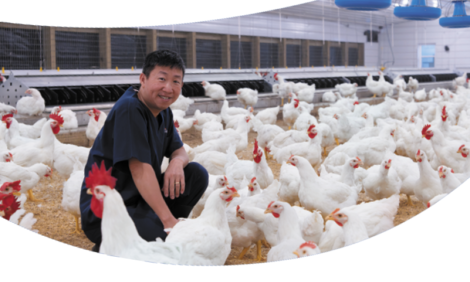



China Cage-Free Working Group introduced to expand cage-free market
Multi-stakeholder group meets to exchange information, make plans for futureCage-free commitments, conferences and farm standards are significant achievements in China. They promote certified cage-free eggs in the market and enhance welfare practices on layer farms. However, due to limited engagement between different stakeholders, some work may be repeated, information may not be transparent and supply may not align with the demand.
FAI Farms, Integrated Quality Consultancy (IQC) and China Animal Health and Food Safety Alliance (CAFA) initiated the ‘Cage-free working group’ (hereafter ‘working group’) to unite these forces in order to jointly expand the cage-free market in China. On the production end, equipment companies, pharmaceutical businesses, academics, producers and retailers are invited to discuss potential expansion of farms and streamlining the supply chain for cage-free eggs. On the consumption end, certification bodies, NGOs, consulting firms and restaurants are mobilized to collectively propose strategies to raise consumer awareness and add value to higher welfare eggs. Resources will also be shared among the members to better understand all activities taking place.
The working group is set up as a private WeChat group with more than 20 members. This includes representatives from relevant NGOs, research institutions, consulting firms, pharmaceutical companies, cage-free egg brands, retailers and restaurants. Monthly meetings, online and offline, are arranged to facilitate communication and build relationships between the members. An industry white paper will also be drafted with information provided by the members (to be released later this year). This report will provide an overview of the cage-free industry in China, highlighting development trends in the past, present and future.
The first online meeting took place on August 3rd and included three insightful presentations followed by a discussion where members expressed their excitement and expectations for this working group. The presentations summarized cage-free farm policies and development abroad, which was then compared and contrasted to the situation in China. Many cage-free farm systems and animal welfare standards were referenced. Nevertheless, implementing them requires stronger supply chains and consumers that recognize the value of animal welfare. This may be particularly difficult in China where food labels can be ambiguous and complicated. Translated terms of ‘cage-free’ and ‘animal welfare’ are also less familiar to the Chinese public, resulting in potentially more confusion and little trust. Therefore, public education and effective communication would be other critical aspects for cage-free/high-welfare concepts to be acknowledged and appreciated.
After the presentations, members shared valuable perspectives, plans and concerns regarding the cage-free egg market development in China. This discussion primarily revolved around the consumption end, where several members addressed the need to elevate and convey the value of cage-free and high welfare eggs for consumers. Proposed solutions include adding a welfare-specific shelf in supermarkets or ranking cage-free producers. As more cage-free egg farms are being certified by the Humane Farm Animal Care (HFAC) international animal welfare standard, members also hoped that this working group can help increase awareness, credibility and value of such certification among consumers. Bridging ‘cage-free’ and ‘animal welfare’ with other more popular qualities in China, such as ‘safe-to-be-eaten-raw’ or ‘free-range’, were also suggested to reach a wider range and larger number of consumers.
The second meeting is scheduled as an in-person meeting in September. This will bring members closer together and stimulate further plans to be enacted.








